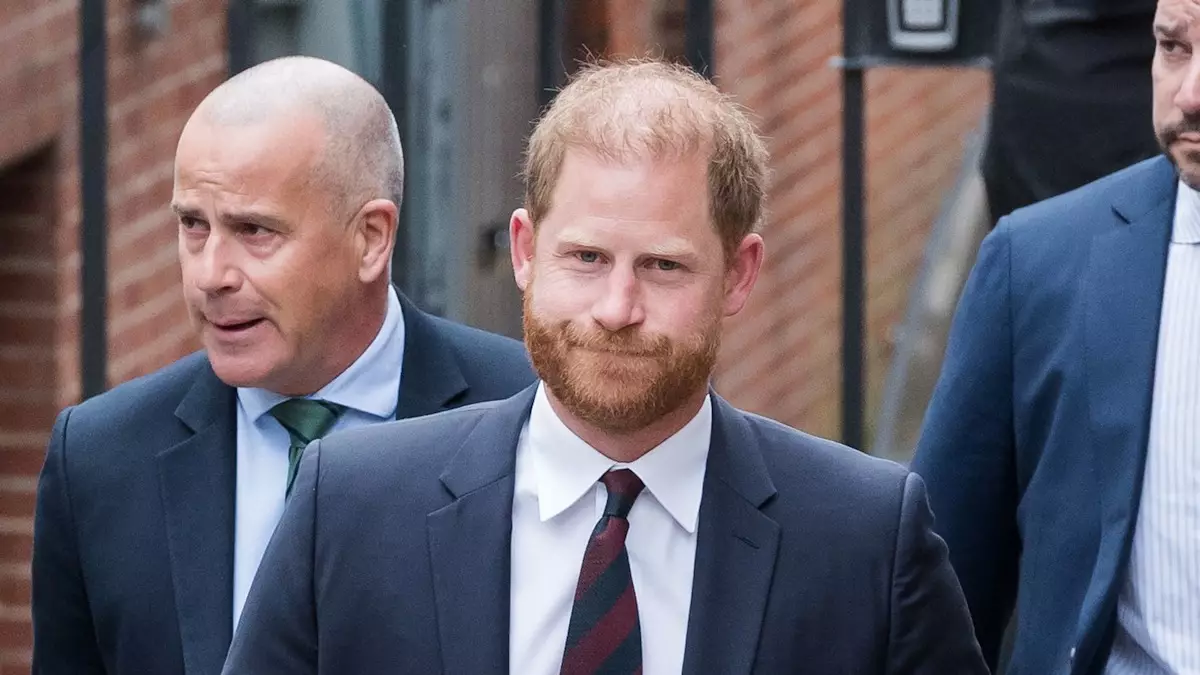The political landscape has always been a stage for lively banter, but when a prominent British politician, Nigel Farage, chose to ridicule Prince Harry during a high-profile conference in the United States, it was more than just a cheap laugh. This incident occurred at the Bitcoin Conference in Las Vegas, where Farage made a cheeky remark intended to spark laughter among an audience eager for light-hearted moments in a serious dialogue about cryptocurrency. The quip was not just a comedic throwaway; it highlighted the ongoing cultural clash between the United Kingdom and America, particularly when it comes to royal figures like Harry.
Farage, now the leader of Reform UK, was discussing his party’s acceptance of cryptocurrency donations when he pivoted to his jibe at Harry, who left his royal duties behind in 2020 in favor of a life in California with Meghan Markle. From Farage’s standpoint, this remark was more than comedic relief; it was a politically charged shot at how the UK has been perceived internationally. The implication that Harry is a negative export speaks volumes about how Farage and many Britons perceive the Sussexes’ transition from royalty to a celebrity-focused lifestyle.
The Woke Debate and Transatlantic Tensions
In his speech, Farage touched upon what he termed “woke” culture, suggesting that while the US has produced some positive ideas, it also brought along a cultural baggage that is not well-received in the UK. His remarks resonate deeply with a portion of the British public that feels disillusioned by what they see as an overreach of American liberal ideals. It’s a clear indication of how Harry’s lifestyle choices, particularly his outspoken nature on issues like mental health and social justice, have made him a polarizing figure in Britain.
Harry’s evolution from a beloved royal to someone frequently discussed with disdain can also be viewed through the lens of cultural ambivalence. For some, he embodies progress—fighting against the outdated norms of monarchy. For others, like Farage, he has become a figure representing the perceived moral decline propagated by what they call “woke” culture. As Harry candidly mentions in his reflections about America, he values the freedom to raise his children away from the scrutiny of the British tabloids, pointing to a stark contrast between the two cultures. However, his very existence challenges traditional British values associated with the monarchy.
Prince Harry: From Royal Heir to Media Dynamo
Despite the comedic barbs thrown his way, Harry’s post-royal life is substantially more complex than merely being a punchline. He and Meghan have successfully carved out a place for themselves in the media space, engaging in meaningful charitable work and advocating for causes that reflect their values. Harry’s claims about enjoying a quality of life with his children that he felt was unattainable in the UK highlight a broader narrative—a narrative about redefining success and happiness outside the constraints of royal expectations.
Harry’s self-awareness about his unique circumstances adds layers to the public’s perception of him. While Farage and his supporters relish in their derision of Harry, many Americans continue to empathize with his desire for a more fulfilling life. The duality of being a royal and a celebrity complicates the Sussexes’ public image, making them subjects of admiration and ridicule in equal measure.
The Implications of Farage’s Remarks
The political humor employed by Farage holds implications that extend beyond mere comedy. By using Harry as a comedic device, Farage underscores the ongoing fascination and ambivalence that the Britons have toward their royal family, particularly those who step outside the traditional roles. The laughter it elicited from the audience serves as a reminder of the societal divisions permeating contemporary British life.
In essence, Farage’s comments are more indicative of a deep-seated discomfort with rapid cultural shifts than mere jest. They encapsulate the struggle between maintaining traditional British values and adapting to a world that is rapidly changing. While Harry and Meghan embrace a new narrative that celebrates freedom and individuality, their choices simultaneously spark debates about identity, belonging, and cultural values in a post-monarchy world.

